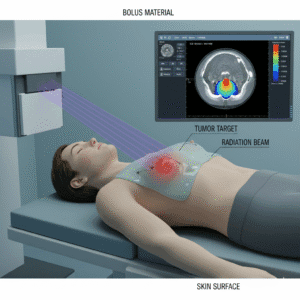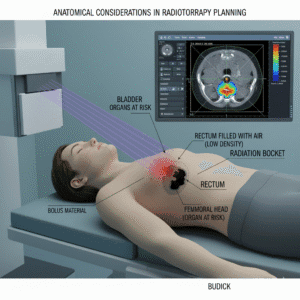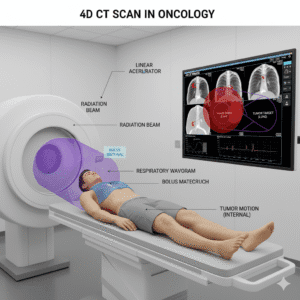
Cancer Info
Liver cancer
How common are liver cancers in India?
Hepato-biliary cancers, which include liver cancer and cancers of the bile ducts, are increasingly common in India. The incidence of liver cancer is particularly high due to factors such as hepatitis B and C infections, alcohol consumption, and exposure to aflatoxins (toxins produced by certain moulds). According to recent data, liver cancer is one of the leading causes of cancer-related deaths in the country.
What are the main risk factors for hepato-biliary cancers?
Several risk factors increase the likelihood of developing hepato-biliary cancers:
- Chronic Viral Infections: Hepatitis B and C viruses can cause long-term liver inflammation, increasing cancer risk.
- Alcohol Use: Chronic alcohol consumption can lead to liver cirrhosis, a significant risk factor for liver cancer.
- Non-Alcoholic Fatty Liver Disease (NAFLD): Conditions that cause fat accumulation in the liver can lead to inflammation and cancer.
- Exposure to Aflatoxins: Consuming contaminated food can increase cancer risk.
- Genetic Factors: Certain inherited conditions can predispose individuals to liver cancers.
How is hepato-biliary cancer screened for?
Currently, there are no routine screening tests for the general population. However, individuals at high risk, such as those with chronic hepatitis infections or cirrhosis, may undergo regular monitoring through:
- Ultrasound: To detect liver tumors.
- Alpha-fetoprotein (AFP) Blood Test: Elevated levels of this protein can indicate liver cancer.
What are the signs and symptoms of hepato-biliary cancers?
Common symptoms include:
- Unexplained Weight Loss: Losing weight without trying can be a warning sign.
- Abdominal Pain or Discomfort: Persistent pain in the upper abdomen.
- Jaundice: Yellowing of the skin and eyes due to bile duct obstruction or liver dysfunction.
- Fatigue: Constant tiredness or weakness.
- Nausea and Vomiting: Persistent digestive issues, possibly with blood.
How do smoking and alcohol affect the risk of hepato-biliary cancers?
Both smoking and alcohol consumption significantly increase the risk of hepato-biliary cancers. Smoking can cause damage to the liver and increase cancer risk, while chronic alcohol use leads to liver inflammation and cirrhosis. It’s advisable to limit or eliminate these habits to reduce cancer risk.
What is the role of hepatitis viruses in liver cancer?
Chronic infections with hepatitis B and C viruses are major contributors to liver cancer. These viruses cause inflammation and damage to liver cells over time, leading to cirrhosis and increasing the risk of cancer development. Vaccination against hepatitis B and effective treatment for hepatitis C can help reduce this risk.
What investigations are done to diagnose hepato-biliary cancer?
Diagnosis may involve several tests:
- Imaging Tests: Ultrasound, CT scans, or MRI help visualize the liver and bile ducts.
- Biopsy: A tissue sample may be taken for analysis to confirm cancer.
- Blood Tests: Check liver function and levels of tumor markers like AFP.
How is hepato-biliary cancer managed based on its stage?
Management depends on the stage of cancer:
- Early Stage: Surgical options like partial hepatectomy (removal of part of the liver) or liver transplantation may be curative.
- Localized Advanced Stage: Treatments may include transarterial chemoembolization (TACE) or radiofrequency ablation (RFA).
Metastatic Disease: Management often involves systemic therapies like chemotherapy or targeted therapies
What are molecular tests, and why are they important?
Molecular tests analyze the genetic characteristics of cancer cells. They help identify specific mutations or biomarkers that can guide treatment decisions. For instance, if a tumor has certain mutations, targeted therapies may be more effective, leading to better outcomes.
What is targeted therapy for hepato-biliary cancer?
Targeted therapy uses drugs that specifically target cancer cells based on their genetic or molecular features. For liver cancer, certain targeted therapies can block the signals that promote tumor growth, leading to more effective treatment with fewer side effects compared to traditional chemotherapy.
What role does chemotherapy play in treating hepato-biliary cancer?
Chemotherapy uses drugs to kill rapidly dividing cancer cells. It is often used in advanced stages of hepato-biliary cancers. While effective, chemotherapy can cause side effects such as nausea, hair loss, and fatigue. Regimens may include combinations of drugs tailored to individual patient needs.
How does immunotherapy work for hepato-biliary cancer?
Immunotherapy enhances the body’s immune response against cancer. Certain therapies, like immune checkpoint inhibitors, can help the immune system recognize and attack cancer cells. This approach is particularly useful for patients with advanced liver cancer who have not responded to other treatments.
What is the role of radiotherapy in treating hepato-biliary cancer?
Radiotherapy uses high-energy rays to kill cancer cells. It may be used in various ways:
- Preoperative: To shrink tumors before surgery.
- Postoperative: To eliminate remaining cancer cells.
- Palliative Care: To relieve symptoms in advanced cases. Side effects may include fatigue and localized skin irritation.
What is Transarterial Chemoembolization (TACE)?
TACE is a minimally invasive procedure used to treat liver tumors. It involves delivering chemotherapy directly to the tumor through its blood supply and simultaneously blocking blood flow to starve the tumor. This approach can help shrink tumors and improve survival rates in certain patients.
What is Radiofrequency Ablation (RFA)?
RFA is a procedure that uses heat generated by radio waves to destroy cancer cells. It is particularly useful for small tumors and can be performed percutaneously (through the skin) or laparoscopically. RFA is less invasive than surgery and typically has a shorter recovery time.
What is SIRT (Selective Internal Radiation Therapy)?
SIRT is a type of radiation therapy that involves injecting tiny radioactive beads into the blood vessels supplying the tumor. This treatment delivers targeted radiation directly to the cancer cells while sparing surrounding healthy tissue. It is often used for liver tumors that cannot be surgically removed.
What are the indications for liver transplantation?
Liver transplantation may be considered for patients with early-stage liver cancer and cirrhosis, where the cancer meets specific criteria (like the Milan criteria). The transplantation not only removes the tumor but also addresses underlying liver disease, potentially offering a cure.
What are the benefits of CyberKnife radiosurgery or SBRT (Stereotactic Body Radiation Therapy)?
CyberKnife and SBRT are advanced forms of radiotherapy that deliver highly focused radiation to tumors, minimizing damage to surrounding healthy tissue. Benefits include:
- Precision: Targets tumors very accurately.
- Non-Invasive: No surgical incisions are required.
- Fewer Treatments: Typically requires fewer sessions compared to traditional radiation therapy.
- Minimal Side Effects: Often leads to fewer side effects, improving patient quality of life.
. What should I expect during follow-up appointments?
Follow-up appointments are vital for monitoring your recovery and checking for any signs of recurrence. These visits may involve:
- Physical Examinations: Assessing your overall health.
- Imaging Tests: Regular ultrasounds or CT scans to check for tumor recurrence.
- Blood Tests: Monitoring liver function and tumor markers (S. CEA)
How can diet and nutrition support recovery from hepato-biliary cancer?
A balanced diet is crucial for recovery. Focus on consuming:
- Fruits and Vegetables: Rich in vitamins and antioxidants.
- Lean Proteins: To help repair tissues.
- Whole Grains: For sustained energy.
Consulting a registered dietitian can help tailor dietary recommendations to support your recovery, especially if you’re experiencing difficulties with appetite or digestion.




